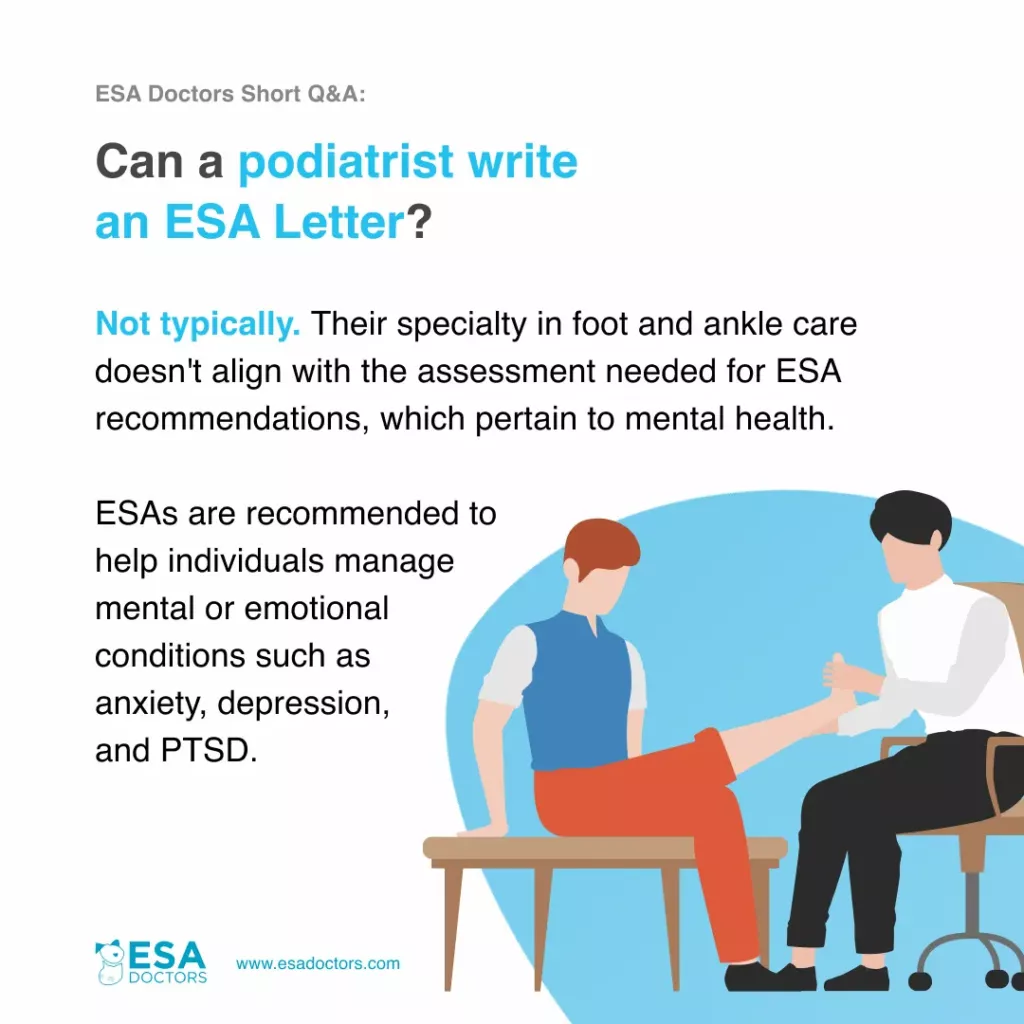The Short Answer: Not typically. While podiatrists are esteemed healthcare professionals, their specialty in foot and ankle care doesn’t align closely with the assessment needed for emotional support animal (ESA) recommendations, which pertain to mental health.
Qualifications of a Podiatrist
Podiatrists are indispensable, providing vital healthcare services dedicated to the foot, ankle, and lower extremities. Becoming a podiatrist involves earning a Doctor of Podiatric Medicine (DPM) degree and completing a residency program. Their primary focus is on conditions, diseases, and injuries related to the lower extremities, ensuring that individuals can navigate life with as much mobility and as little pain as possible.
That said, podiatrists are not generally involved in mental health assessments, which are crucial when evaluating the necessity of an ESA. Emotional support animals are recommended to help individuals manage mental or emotional conditions such as anxiety, depression, and post-traumatic stress disorder.
ESA Letters: A Glimpse
ESA letters are not prescriptions per se but a formal recommendation stating that an individual requires an emotional support animal to manage their condition. An ESA letter typically comes from a professional who is involved in the mental health or emotional care of a patient – psychologists, therapists, psychiatrists, counselors, social workers, and certain other licensed healthcare professionals.
An ESA letter gives you certain legal rights, including the right to live with your pet in no-pet buildings, free of charge.
When Physical and Mental Health Intersect
It’s vital to remember that our physical health does impact our mental well-being. For someone struggling with foot issues, especially if it affects their mobility and lifestyle, emotional and mental strains can develop. Thus, a podiatrist might observe the impact that a foot ailment has on a patient’s mental health.
While podiatrists might not write an ESA letter, they can certainly be part of a holistic care team. They might work alongside mental health professionals to ensure that their patient’s overall well-being is being catered to comprehensively.
Concluding Thoughts
Although podiatrists may not be suitable professionals to write ESA letters due to their specialization in foot and ankle care, they play an indispensable role in a healthcare team. If you’re exploring the benefits of having an ESA and aren’t sure where to start, seeking a mental health professional would be a strategic first step.
For those exploring the realm of emotional support animals and ESA letters, organizations like ESA Doctors can be a bridge, connecting individuals with licensed professionals well-versed in writing ESA letters.
And remember, whether it’s your feet or your feelings, seeking and connecting with the right healthcare professional is your pathway to the best possible care.








Leave a Comment